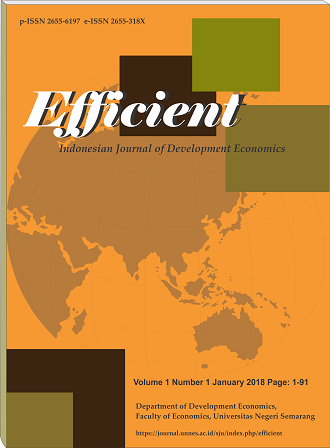The Influence of Monetary Policies on Manufacturing Output
Abstract
The aim of this study is to examine the effect of monetary policies on manufacturing outputs in Indonesia. This research uses a quantitative method with the Engle-Granger Error Correction Model (E-G ECM) analysis. This study applies monetary policies variables which consist of broad money, foreign exchange reserves, inflation, and Bank Indonesia interest rates on the outputs of the manufacturing sector reflected in the value of the gross domestic product of the manufacturing sector. The data are time-series data from 2010 Q1 to 2021 Q4. The results show that in the short run, inflation significantly influences manufacturing outputs. Meanwhile, broad money, foreign exchange reserves, and interest rates do not affect manufacturing outputs. In the long run, broad money, inflation, and the interest rate of Bank Indonesia significantly influence manufacturing outputs, while the foreign exchange reserve does not significantly affect manufacturing outputs. This study emphasizes the importance of broad money, inflation, and the interest rate to increase manufacturing outputs in Indonesia.






